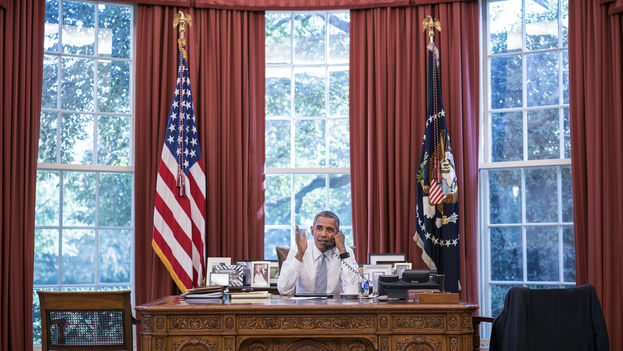
![]() 14ymedio, Reinaldo Escobar, Havana, 10 March 2016 – In the official newspaper Granma’s latest editorial there is a lot of fat to be cut, but in this commentary I will limit myself to what can be defined as a double interpretation of legitimacy.
14ymedio, Reinaldo Escobar, Havana, 10 March 2016 – In the official newspaper Granma’s latest editorial there is a lot of fat to be cut, but in this commentary I will limit myself to what can be defined as a double interpretation of legitimacy.
At the end of the second paragraph of the text it states that “this will be the first time a president of the United States comes to a Cuba that is master of its own sovereignty and with a Revolution in power, led by its historic leadership.”
The nexus between the country’s sovereignty and the prolonged stay in power of the self-styled “historic leadership” already offers enough confusion, but the contradiction becomes greater when we get to the last lines of the next paragraph, where it says that the process towards normalization “has barely begun and (…) has advanced over the only possible and just terrain, respect, equality, reciprocity, and the recognition of the legitimacy of our government.”
When it comes time to discuss bilateral issues and long-standing accumulated problems, we will have to listen to the voice of those who took power by force of arms and who maintain, by force, repression, building on the maxim that a revolution is an indisputable source of law. However, to be recognized as legitimate, the mask of “our government” is put on some gentlemen in collars and ties (or an impeccable guayabera) who should have been elected in a democratic process and who should lead the country under the rule of law.
This is not an editorial failure produced from neglect or passion, but a deliberate intention to make President Barack Obama’s visit something more than the turning of a page, something more than a “clean slate.” It is trying to convert it into the acceptance (and, why not, a round of applause?) for events that, like a revolution. typify everything that has happened in Cuba over the last 56 years, which include not only “the undeniable achievements” so often advertised, but also the atrocities, whose simple enumeration would make this text interminable.
If conversations with leaders elected by the people, leaders who have no responsibility for the past, as is the case with Obama – according to what the general-president Raul Castro himself has acknowledged – then one could speak of reciprocity and equal treatment. It is not the same to sit down with those who refuse to apologize for their mistakes as it is to do so with something who does not carry the blame. It is not the same to argue, “We had not choice other than to act this way,” as it is to say, simply, “I wasn’t there, I wasn’t born when that happened.”
The editorial of 9 March deserves other observations with regards to its real intentions, but that would require too much patience from readers.
